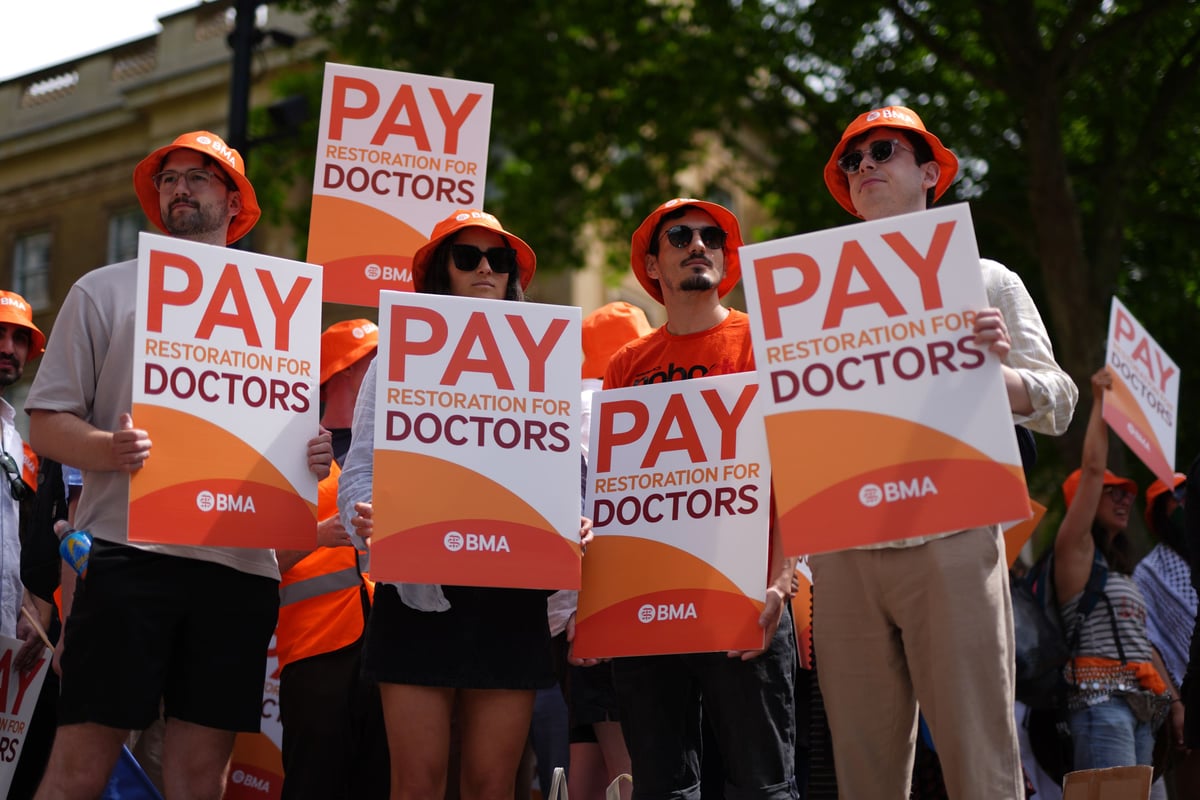Strengthening Hospitals: 'We Have Your Backs' Ahead of Strikes

Government and NHS Officials Address Upcoming Doctor Strike
Wes Streeting, the Health Secretary, has assured hospital leaders that the government stands behind them as resident doctors prepare for a five-day strike. The walkout, scheduled to begin on Friday, is expected to impact patient care and hospital operations. NHS England has emphasized that hospitals and local teams are preparing for the strike, with plans in place to minimize disruptions and ensure life-saving care continues.
This strike marks the 12th by resident doctors since March 2023, highlighting ongoing tensions between medical professionals and the government over pay and working conditions. During a call with hospital leaders, Wes Streeting reportedly said, “We have your backs” if they need to make staffing decisions. NHS England’s new boss, Sir Jim Mackey, also expressed confidence in the NHS's ability to withstand the demands of the British Medical Association (BMA), stating that safety decisions should be made by the NHS, not the BMA.
Sir Jim has urged hospital leaders to keep routine operations and appointments running if possible, only canceling when there is a risk to patient safety. GP surgeries will remain open, and urgent care and A&E services will continue to be available during the strike. NHS England is encouraging the public to use 111 online for non-life-threatening issues and to dial 999 in emergencies.
Professor Meghana Pandit, NHS England’s national medical director, acknowledged the impact of the industrial action but stressed that the NHS is doing everything possible to limit disruptions. She urged patients to continue using NHS services as usual unless instructed otherwise.
The BMA has criticized NHS England’s plan to maintain normal operations during the strike, warning that it could lead to unsafe staffing levels. Dr. Tom Dolphin, BMA council chairman, expressed concern that hospitals may face confusion and last-minute cancellations, putting patients at risk. He emphasized that the priority during strikes must be emergency and urgent care, not routine procedures.
Strikes by resident doctors in June resulted in over 61,000 appointments being rescheduled, and since the end of 2022, nearly 1.5 million appointments have been affected by industrial action. The BMA reported that talks with the government to avoid the strike collapsed over the core issue of pay. Dr. Melissa Ryan and Dr. Ross Nieuwoudt, co-chairs of the BMA’s resident doctors committee, stated that no doctor wants to strike and that a credible path to pay restoration would have prevented the action.
Wes Streeting defended the government’s position, citing a 28.9% pay rise for resident doctors over the past three years and the highest pay increase in the public sector for two consecutive years. He suggested that the BMA could have worked with the government to improve working conditions and create roles to address career progression bottlenecks. Instead, he argued, the union chose to take strike action, which he called unjustified and unprecedented.
Public support for the strike appears to be declining. A YouGov poll found that 52% of UK adults either somewhat or strongly oppose the strike, while 34% support it. This represents a drop in support compared to May, when 39% supported the strikes and 48% opposed them.
Resident doctors are qualified medical professionals undergoing clinical training. They have completed a medical degree and can have up to nine years of hospital experience, depending on their specialty, or up to five years of experience before becoming a general practitioner.
Post a Comment for "Strengthening Hospitals: 'We Have Your Backs' Ahead of Strikes"
Post a Comment